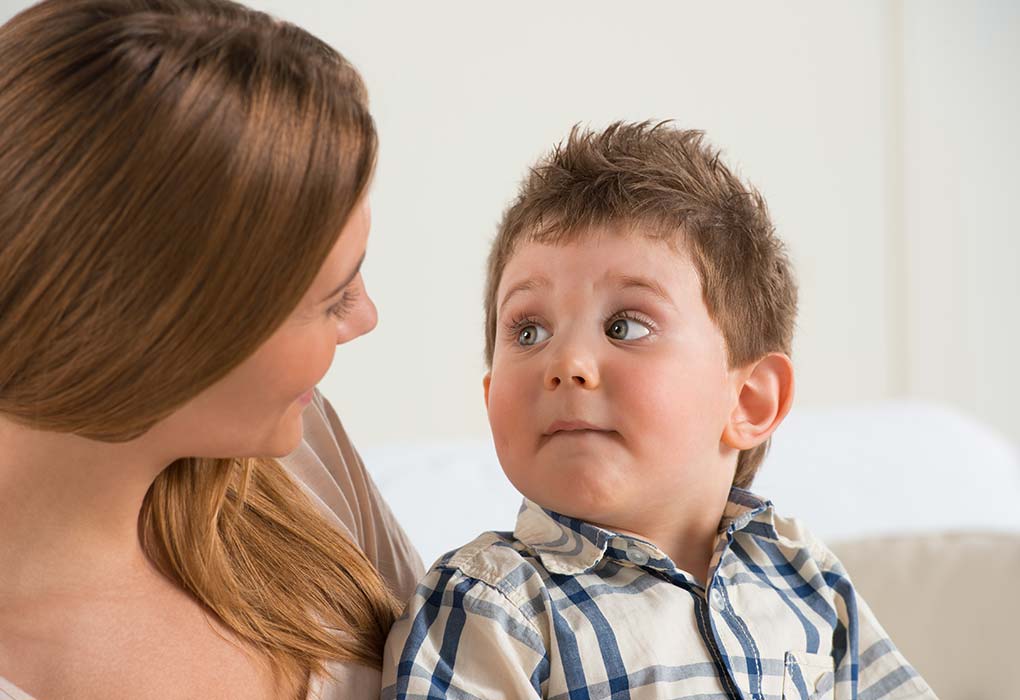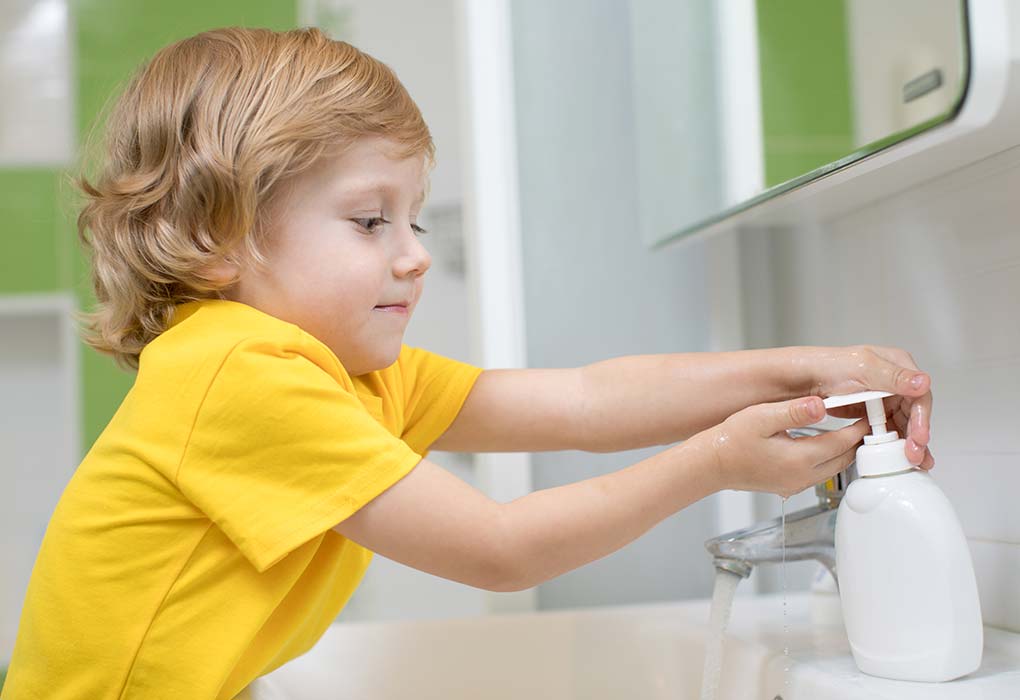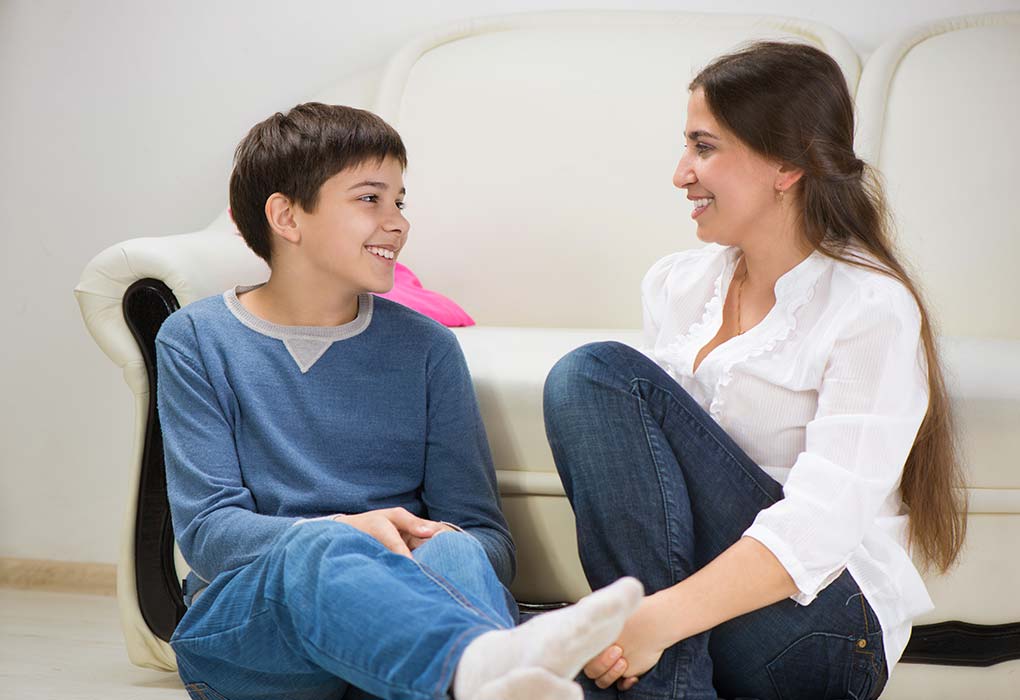As the COVID-19 coronavirus continues to span its raven’s wings across the globe, the news related to it is spreading even rapidly – from the front page of newspapers to the last seat of the school bus to the play area of your society. By now, your child may have sensed that something is terribly wrong, especially if you once went to office and are now home all day. To prevent any misinformation causing fear, your child needs to hear reliable information, and from you.
Here’s how you can talk to your child about Coronavirus.
1. First, find out what (and how much) your child knows.
Bring up the subject of Coronavirus with your child to understand if he knows about it. If yes, then find out what (and how much) he knows. Listen to your child patiently while he tells you everything he has heard. Correct him if he’s misinformed, you want to give him reliable information. The more facts he knows, the more reassured he will be. Give him ample time to process the information and to ask questions. Try to answer him as honestly as is appropriate for his age.

2. Figure out (and address) the issue that’s bothering him.
If you’ve a school-going child, his major worries will be that he won’t be able to meet his friends or go outdoors too much for a while. If your child is a bit older, he may worry that he might get infected. Watching everyone wearing masks, schools closing, not being able to play in the playground or parks – everything that’s unusual can scare your child. He needs reassurance from his parents that everything will be fine. Talk to your child about COVID-19, explain the symptoms of it to him and help him understand that it is rarely contracted by children.
Let him know that he has you and he can come to you anytime to share his fears or for anything he wants to talk about; address his concerns calmly!
3. Offer age-appropriate information.
If your child has not heard about the coronavirus yet or is too young to understand it, do not bring it up. Ask him to practise good hygiene without giving him any new information. But if he knows it from his friends, then let him talk about it and ask questions. As stated earlier, be honest and clear in your responses, but don’t share too much information, you don’t want to overwhelm your kid.
4. Let your child know what he can do to stay safe.
One of the best ways to comfort your child is by educating him about the safety precautions. Teach your child good hygiene practices, like washing his hands. Let your child know that as the coronavirus is transmitted mostly by touching surfaces or coughing, he should wash his hands with soap and water thoroughly and cough or sneeze into a tissue or elbow. Remind him, to wash his hands for 20 seconds, before and after eating, after sneezing or coughing, after using the bathroom, or after coming from outside.

5. Say ‘No’ if you don’t know something.
It’s okay if you don’t have answers to all your child’s questions, you can say so. The COVID-19 Coronavirus is as unprecedented as unwanted, and scientists and doctors are trying day and night, to devise a cure for it. It’s a time of uncertainty, and nobody has answers. Let your child know that you don’t have a response to his question; in fact, try to learn about it together, keeping the unpleasant details from him!
6. Talk about the positive things that are being done to keep people safe.
Talk about COVID-19 with your kid in a positive light. Your child will feel comfortable knowing that doctors and hospitals are prepared to deal with (and treat) people who have been infected. If your child is a little older, you can tell him that scientists are even trying to develop a vaccine for it.
7. Keep your child posted.
Reassure your child that you will keep him informed about the subject. By doing so, you’re letting him know that he can come to you if he learns something new and share it with you without any concerns. He will be happy with the thought that his mom and dad are being honest, and consider him old enough to share important information with him.

In this stage of an emergency, keep your child safe by keeping him informed. Talk in a child-friendly tone and avoid giving more than necessary details. Throw in some cuddles to make your little one feel comfortable and reassured. And remember, make good use of all that time you are going to spend together!









